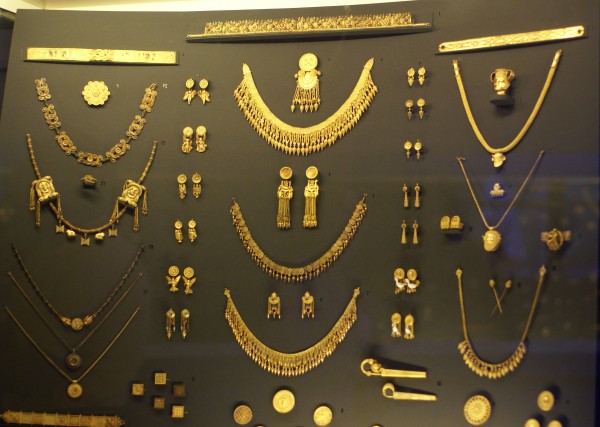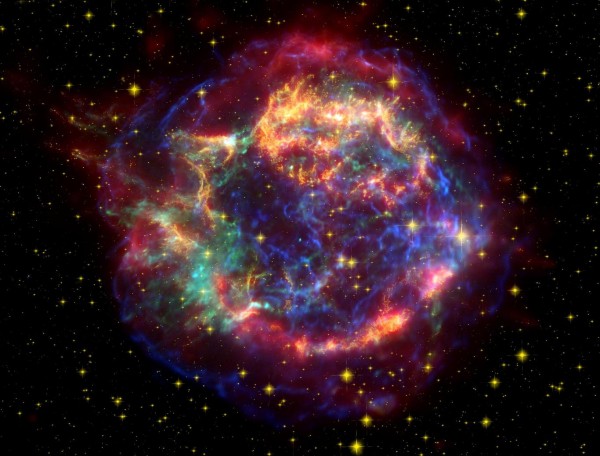“Don’t gain the world and lose your soul;
wisdom is better than silver or gold.” -Bob Marley
Going back to ancient times, it's hard to think of a more commonly coveted element than gold. In fact, trying to transmute other elements into it was perhaps the holy grail of the pseudoscience of alchemy, the forerunner of modern chemistry.
 Image credit: National Etruscan Museum at Villa Giulia, of Etruscan Gold, via flickr user HEN-Magonza, at http://www.flickr.com/photos/hen-magonza/4256649637/.
Image credit: National Etruscan Museum at Villa Giulia, of Etruscan Gold, via flickr user HEN-Magonza, at http://www.flickr.com/photos/hen-magonza/4256649637/.
Yet, when was the last time you thought about where elements like gold actually came from? It's true that small amounts are made in supernovae, but is that enough to account for the amount of gold we have here on Earth?
 Image credit: Spitzer Space Telescope (red), Hubble Space Telescope (orange), Chandra X-ray Observatory (blue and green) / NASA.
Image credit: Spitzer Space Telescope (red), Hubble Space Telescope (orange), Chandra X-ray Observatory (blue and green) / NASA.
The surprising answer is no! So where does gold come from, cosmically? Go read the whole thing and find out.

Ethan Siegel two parter for ya, not the least bit related. 1)Does this give us any clue as to where our star came from or what happened in our part of the galaxy before our star formed? Can we assume that this process occurred nearby?
and the more out there 2) do we know if Earth is average in being made up of so many different materials? I know we haven't been able to mine any other bodies in our solar system to really see what they are made up of, but everything seems to be a lot less diverse. Would Mars probably have gold and other precious metals like we do? And asking you to wildly speculate here, could this diversity of materials on Earth play a part in our intelligence? Could this be another factor with Drake and Fermi's ideas?
Jeremy,
Don't know about (1), but see Ethan's earlier post here for a partial answer to (2). There isn't really an "average" planet; the ability of protoplanets to grab and maintain heavy metals will depend on whether it's inside the soot line (expect very high percents of heavy metals), inside the frost line (expect some), or outside of it (expect very high percents of frozen water and organics instead).
, but Earth seems to fit the pattern of a rocky world that develops
This is really great, it just shows how our understanding of our universe is increasing as we dedicate ourselves and our time to researching about the things around us. I have a question though, if gold is formed by the interactions of photons in the sky how does it get deposited underground?
It is realy interesting to know that there are so many elements in the universe and probably a lot that is stil unknown to humankind, makes you wonder if there are other planets that poses these elements that can help us solve everyday problems. I'm just wondering could all the gold have come from 'the big bang'? What is the posibility that gold is perhaps just a residue that was created while other elements reacted in supernova?